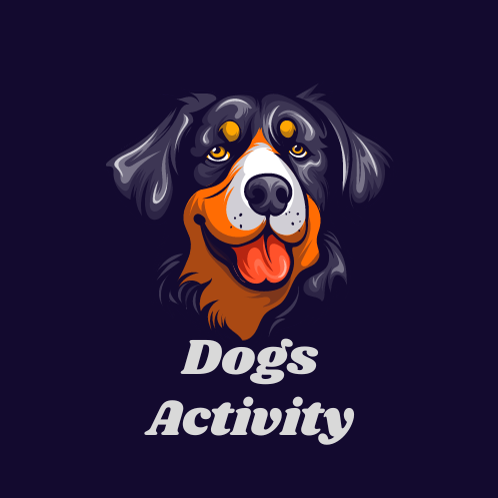
The idea of humans consuming dog food might raise eyebrows and elicit quizzical expressions. After all, dog food is specifically formulated for our four-legged friends, not for us, right? While it’s indisputable that the primary consumers of dog food are canines, the question of whether can humans eat dog food does pique curiosity. In this article, we will delve into this peculiar inquiry, exploring the ingredients in dog food, potential health risks, and the reasons why humans might consider such an unconventional choice.
Understanding Dog Food Ingredients
To address the question of whether humans can eat dog food, it’s essential to examine the ingredients commonly found in these pet products. Dog food typically comprises a blend of protein, carbohydrates, fats, vitamins, and minerals, each selected to meet the nutritional needs of our furry companions. While these ingredients are essential for dogs, they are not inherently harmful to humans.
- Protein Sources: Most dog food contains animal-based proteins, such as chicken, beef, or fish. These are safe for human consumption as they provide valuable nutrients. However, they are not processed or seasoned for human palates, making them less appetizing.
- Carbohydrates: Carbohydrates in dog food are often derived from grains like corn or wheat. While they are edible for humans, they might lack the flavor and texture we prefer in our diets.
- Fats: Dog food contains fats for energy, just like human food. These fats are usually safe for human consumption, but their flavor might not be particularly appealing.
- Vitamins and Minerals: Dog food is fortified with essential vitamins and minerals. While these are generally safe for humans, there are better dietary options available for us.
Potential Health Risks
Before experimenting with consuming dog food, it’s crucial to consider the potential health risks involved. While the ingredients found in most dog foods are not inherently harmful to humans, there are some important factors to keep in mind:
- Nutritional Imbalance: Dog food is formulated to meet the dietary needs of dogs, not humans. Consuming dog food regularly could result in a nutritional imbalance for humans, potentially leading to health issues in the long run.
- Flavor and Palatability: Dog food is not designed with human taste buds in mind. Its unappealing flavor and texture might make it challenging to consume comfortably.
- Preservatives and Additives: Some dog food brands may contain preservatives and additives that are safe for dogs but might not be ideal for human consumption.
- Allergies: Just like humans, dogs can have allergies to certain ingredients. What’s safe for a dog might trigger allergies in a human.
- Bacterial Contamination: Pet food might not undergo the same rigorous safety standards as human food. Consuming dog food could expose you to a higher risk of bacterial contamination.
The Reasons Behind the Curiosity
With these potential risks in mind, why would anyone even contemplate eating dog food? Several reasons contribute to this peculiar curiosity:
- Emergency Situations: In dire circumstances, such as natural disasters or survival situations, people might consider consuming dog food if no other food sources are available.
- Prank Challenges: The rise of internet challenges has led some individuals to experiment with unconventional food choices, including dog food, to entertain their online audience.
- Animal Advocacy: Some humans may sample dog food to empathize with the dietary choices they make for their pets or to advocate for healthier, more natural pet food options.
- Health and Allergies: In rare cases, people with specific dietary restrictions or allergies might explore dog food as a last resort if they have limited alternatives.
In any of these scenarios, it’s essential to approach the idea of eating dog food with caution and awareness of the potential consequences.
Understanding the Contrasting Nutritional Requirements of Dogs and Humans
Understanding the distinct nutritional requirements of dogs and humans is crucial for providing optimal diets that cater to their specific needs.
Nutritional Needs of Dogs:
| Nutrients | Dogs | Explanation |
|---|---|---|
| Protein | Require higher levels, primarily from animal-based sources, for muscle development and overall health. | Dogs need higher protein content to support muscle growth and tissue repair. |
| Fat | Need fats for energy and maintaining healthy skin and coat, including essential fatty acids like Omega-3 and Omega-6. | Fats play a crucial role in dogs’ energy requirements and skin health. |
| Carbohydrates | Can utilize carbohydrates for energy, but they don’t require as high a carbohydrate intake as humans. | Dogs can get energy from carbs, but it’s not a primary dietary need. |
| Minerals and Vitamins | Specific minerals (calcium, phosphorus) and vitamins (A, D, E) are crucial for bone health, growth, and immunity. | Essential for proper bone development and overall health in dogs. |
Nutritional Needs of Humans:
| Nutrients | Humans | Explanation |
|---|---|---|
| Protein | Require varied sources, both animal-based and plant-based, for muscle maintenance and cellular repair. | Humans need diverse protein sources for various bodily functions. |
| Fat | Need different types of fats in moderate amounts for energy, absorbing vitamins, and brain function. | Fats are essential for energy and various bodily functions in humans. |
| Carbohydrates | Primary energy source for humans, requiring complex carbs and fiber for sustained energy and digestive health. | Carbs are a key energy source and contribute to digestive health. |
| Micronutrients | Require a wider range of vitamins and minerals for optimal health compared to dogs. | Humans need various vitamins and minerals for overall health and wellness. |
Legal and Ethical Considerations
Before consuming dog food, it’s crucial to consider the legal and ethical implications. In most countries, dog food is not regulated or approved for human consumption. Additionally, ethically, it raises concerns as dog food is specifically produced for dogs, and taking it from them may compromise their dietary needs.
If you ever decide to taste dog food out of curiosity, it’s advisable to do so in moderation and ensure the product you select is of high quality and free from harmful additives or preservatives. Always prioritize your health and safety when making such choices.
Alternatives to Dog Food
If you’re intrigued by the idea of tasting pet food but aren’t willing to risk the potential health consequences, there are alternatives available that allow you to experience pet-inspired flavors without compromising your health.
- Gourmet Pet Treats: Some companies produce gourmet pet treats using high-quality ingredients, making them safer for human consumption. These treats might include unique flavors like salmon or venison, offering a taste of the pet food world in a more appealing form.
- Pet Food-Inspired Snacks: Various snacks are inspired by pet food flavors, such as pet food-themed candies or chips. These snacks are formulated for human consumption and allow you to experience pet-inspired flavors without any health risks.
- Home Cooking: If you’re genuinely curious about the ingredients used in pet food, consider making your pet’s food at home. This way, you can control the quality of ingredients and tailor it to your pet’s dietary needs while ensuring that it’s safe for human consumption.
Conclusion
The question of whether humans can eat dog food may be an unusual and intriguing one, but it’s essential to approach it with caution. While the ingredients found in dog food are generally safe for human consumption, there are potential health risks, and it’s crucial to consider the legal and ethical aspects of consuming pet food.
If you find yourself curious about the flavors of pet food, consider exploring safer alternatives such as gourmet pet treats, pet food-inspired snacks, or preparing homemade pet food. These options allow you to experience the unique tastes of the pet food world without compromising your health or ethical considerations.
Ultimately, humans are not meant to subsist on dog food, and it should only be consumed sparingly and with a deep understanding of the associated risks and implications. Prioritize your health, safety, and ethical considerations when contemplating such unconventional dietary choices.
Frequently Asked Question
Can humans eat dog food long term?
Dog food isn’t suitable for long-term human consumption. It lacks essential nutrients required for human health, leading to potential nutritional deficiencies if relied upon as a primary source of nutrition.
Is dog food safe for humans to eat?
Occasional consumption of small amounts of plain dog food might not cause immediate harm. However, as dog food isn’t formulated for human needs, consistent consumption can lead to health issues due to differences in nutritional requirements.
Human grade versus feed grade ingredients
Human-grade ingredients meet stringent standards for human consumption, ensuring quality and safety. Feed-grade ingredients might contain by-products or lower-quality components not suitable for human consumption.
Fresh cooked food is safe for humans to eat
Freshly cooked dog food made with high-quality human-grade ingredients might be safer than traditional pet food. However, it’s important to note that it’s not formulated to meet human nutritional needs.
What happens if you eat dog food?
Consuming small amounts of dog food occasionally may not have immediate adverse effects. However, regular consumption could lead to digestive issues or nutritional deficiencies in humans due to the differing nutritional needs.
Can people eat human-grade dog food?
While human-grade dog food is made with high-quality ingredients, it’s not formulated to meet human nutritional needs. Therefore, it’s not recommended for human consumption.
Exploring the Benefits of Human-Grade Food for Dogs
When it comes to the well-being of our beloved furry companions, diet plays a pivotal role. In recent years, the discussion around human-grade food for dogs has gained attention, raising questions about its benefits and suitability for our canine friends. Let’s delve into the advantages of human-grade food for dogs in a way that’s easy to understand, just like explaining it to a young audience.
High-Quality Ingredients:
Imagine picking out the freshest and healthiest ingredients for your dog’s meals. Human-grade dog food often uses top-quality, whole-food ingredients, similar to those we’d choose for ourselves. These ingredients undergo rigorous standards to ensure they’re safe for both human and canine consumption.
Better Digestibility:
Just like how some foods might upset our tummies, dogs can also experience digestive issues with certain ingredients. Human-grade dog food usually contains easily digestible components, making it gentler on a dog’s stomach, reducing the chances of digestive upset or allergies.
Enhanced Safety Standards:
Safety is paramount, especially in what we eat. Human-grade dog food manufacturers adhere to stringent safety regulations and quality control measures, ensuring that the food is free from contaminants and meets high standards of cleanliness and processing.
Improved Nutritional Balance:
Would you eat the same thing every day? Dogs need a varied and balanced diet too! Human-grade dog food often offers a more diverse range of nutrients, ensuring your furry companion receives a well-rounded meal with all the necessary vitamins and minerals.
Better Palatability:
Think of a delicious meal that makes your taste buds dance – dogs have preferences too! Human-grade dog food tends to have flavors and textures that dogs find more appealing, encouraging them to eat and enjoy their meals.
Healthier Coat and Skin:
A diet rich in high-quality ingredients can contribute to a shinier coat and healthier skin for dogs. Human-grade food often contains essential fatty acids that support skin health and promote a lustrous coat.
Potential Long-Term Health Benefits:
While it’s not a magical cure, feeding your dog human-grade food could potentially contribute to their overall health and well-being in the long run. A nutritious diet plays a significant role in a dog’s vitality and longevity.
In summary, opting for human-grade food for your dog could mean providing them with a diet that’s fresher, safer, more nutritious, and tailored to their taste preferences. Always consult with your veterinarian to choose the best diet for your dog’s individual needs, ensuring they lead a happy, healthy life filled with tail wags and playful moments.
Is there a difference between human-grade and organic dog food?
Human-grade refers to the quality of ingredients suitable for human consumption, while organic refers to how ingredients are produced. Not all organic dog food is necessarily human-grade.
Are there any grey areas when it comes to human-grade dog food?
While human-grade dog food emphasizes quality ingredients and safety, it’s important to note that it may not meet all human nutritional needs, making it unfit for long-term human consumption.
This detailed response aims to address common queries regarding the consumption of dog food by humans, emphasizing the differences in nutritional needs and safety standards between humans and dogs. It’s crucial to seek advice from healthcare professionals for guidance on suitable human diets to ensure proper nutrition and well-being.
Read More: low fat dog food
can humans eat dog food can humans eat dog food can humans eat dog food can humans eat dog food can humans eat dog food can humans eat dog food can humans eat dog food can humans eat dog food can humans eat dog food can humans eat dog food can humans eat dog food can humans eat dog food can humans eat dog food can humans eat dog food can humans eat dog food can humans eat dog food can humans eat dog food can humans eat dog food can humans eat dog food can humans eat dog food


